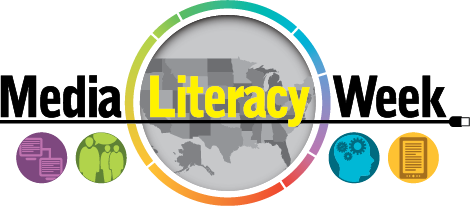Archive: Teacher Tip Tuesday: Avoiding Data and Science Misinformation in Today’s Messy Media Landscape, October 27, 2020
 This panel presentation and discussion will explore the role media play in building scientific and mathematical understanding and the impact misinformation is having on how young people navigate their roles as both students and citizens. The discussants will consider how best to evaluate the data and conclusions shared via mainstream and social media, especially in relation to the pandemic, the environment, the
This panel presentation and discussion will explore the role media play in building scientific and mathematical understanding and the impact misinformation is having on how young people navigate their roles as both students and citizens. The discussants will consider how best to evaluate the data and conclusions shared via mainstream and social media, especially in relation to the pandemic, the environment, the
 This panel presentation and discussion will explore the role media play in building scientific and mathematical understanding and the impact misinformation is having on how young people navigate their roles as both students and citizens. The discussants will consider how best to evaluate the data and conclusions shared via mainstream and social media, especially in relation to the pandemic, the environment, the
This panel presentation and discussion will explore the role media play in building scientific and mathematical understanding and the impact misinformation is having on how young people navigate their roles as both students and citizens. The discussants will consider how best to evaluate the data and conclusions shared via mainstream and social media, especially in relation to the pandemic, the environment, the
 This panel presentation and discussion will explore the role media play in building scientific and mathematical understanding and the impact misinformation is having on how young people navigate their roles as both students and citizens. The discussants will consider how best to evaluate the data and conclusions shared via mainstream and social media, especially in relation to the pandemic, the environment, the
This panel presentation and discussion will explore the role media play in building scientific and mathematical understanding and the impact misinformation is having on how young people navigate their roles as both students and citizens. The discussants will consider how best to evaluate the data and conclusions shared via mainstream and social media, especially in relation to the pandemic, the environment, the
 This panel presentation and discussion will explore the role media play in building scientific and mathematical understanding and the impact misinformation is having on how young people navigate their roles as both students and citizens. The discussants will consider how best to evaluate the data and conclusions shared via mainstream and social media, especially in relation to the pandemic, the environment, the
This panel presentation and discussion will explore the role media play in building scientific and mathematical understanding and the impact misinformation is having on how young people navigate their roles as both students and citizens. The discussants will consider how best to evaluate the data and conclusions shared via mainstream and social media, especially in relation to the pandemic, the environment, the




